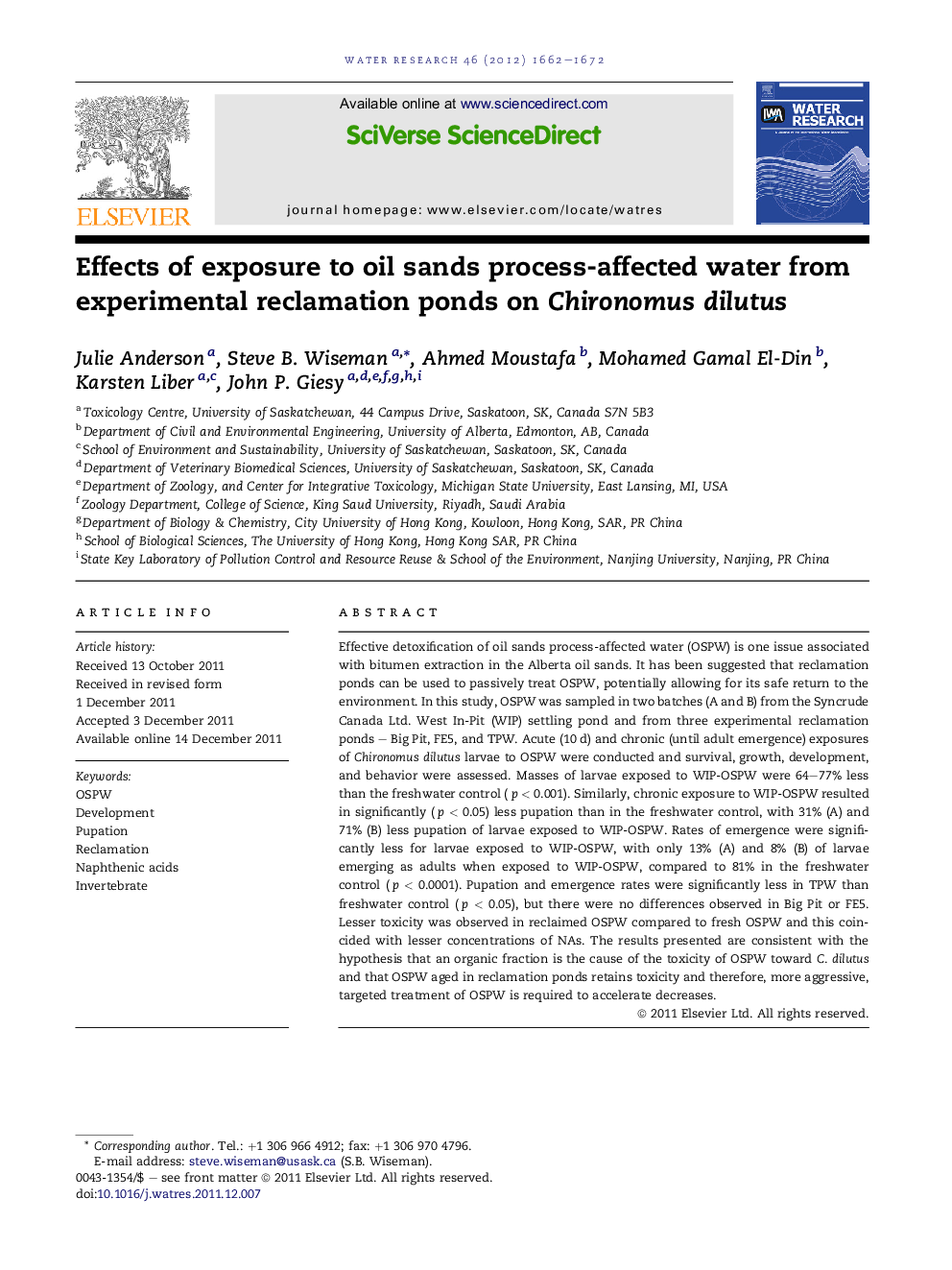| کد مقاله | کد نشریه | سال انتشار | مقاله انگلیسی | نسخه تمام متن |
|---|---|---|---|---|
| 4483465 | 1316889 | 2012 | 11 صفحه PDF | دانلود رایگان |

Effective detoxification of oil sands process-affected water (OSPW) is one issue associated with bitumen extraction in the Alberta oil sands. It has been suggested that reclamation ponds can be used to passively treat OSPW, potentially allowing for its safe return to the environment. In this study, OSPW was sampled in two batches (A and B) from the Syncrude Canada Ltd. West In-Pit (WIP) settling pond and from three experimental reclamation ponds – Big Pit, FE5, and TPW. Acute (10 d) and chronic (until adult emergence) exposures of Chironomus dilutus larvae to OSPW were conducted and survival, growth, development, and behavior were assessed. Masses of larvae exposed to WIP-OSPW were 64–77% less than the freshwater control (p < 0.001). Similarly, chronic exposure to WIP-OSPW resulted in significantly (p < 0.05) less pupation than in the freshwater control, with 31% (A) and 71% (B) less pupation of larvae exposed to WIP-OSPW. Rates of emergence were significantly less for larvae exposed to WIP-OSPW, with only 13% (A) and 8% (B) of larvae emerging as adults when exposed to WIP-OSPW, compared to 81% in the freshwater control (p < 0.0001). Pupation and emergence rates were significantly less in TPW than freshwater control (p < 0.05), but there were no differences observed in Big Pit or FE5. Lesser toxicity was observed in reclaimed OSPW compared to fresh OSPW and this coincided with lesser concentrations of NAs. The results presented are consistent with the hypothesis that an organic fraction is the cause of the toxicity of OSPW toward C. dilutus and that OSPW aged in reclamation ponds retains toxicity and therefore, more aggressive, targeted treatment of OSPW is required to accelerate decreases.
► Fresh oil sands process water impaired growth of Chironomus dilutus.
► Aging of oil sands process-affected water attenuated effects on growth.
► Exposure to fresh or aged oil sands process water impaired pupation and emergence of C. dilutus.
► Organic constituents in oil sands process water are likely responsible for observed toxicity.
Journal: Water Research - Volume 46, Issue 6, 15 April 2012, Pages 1662–1672